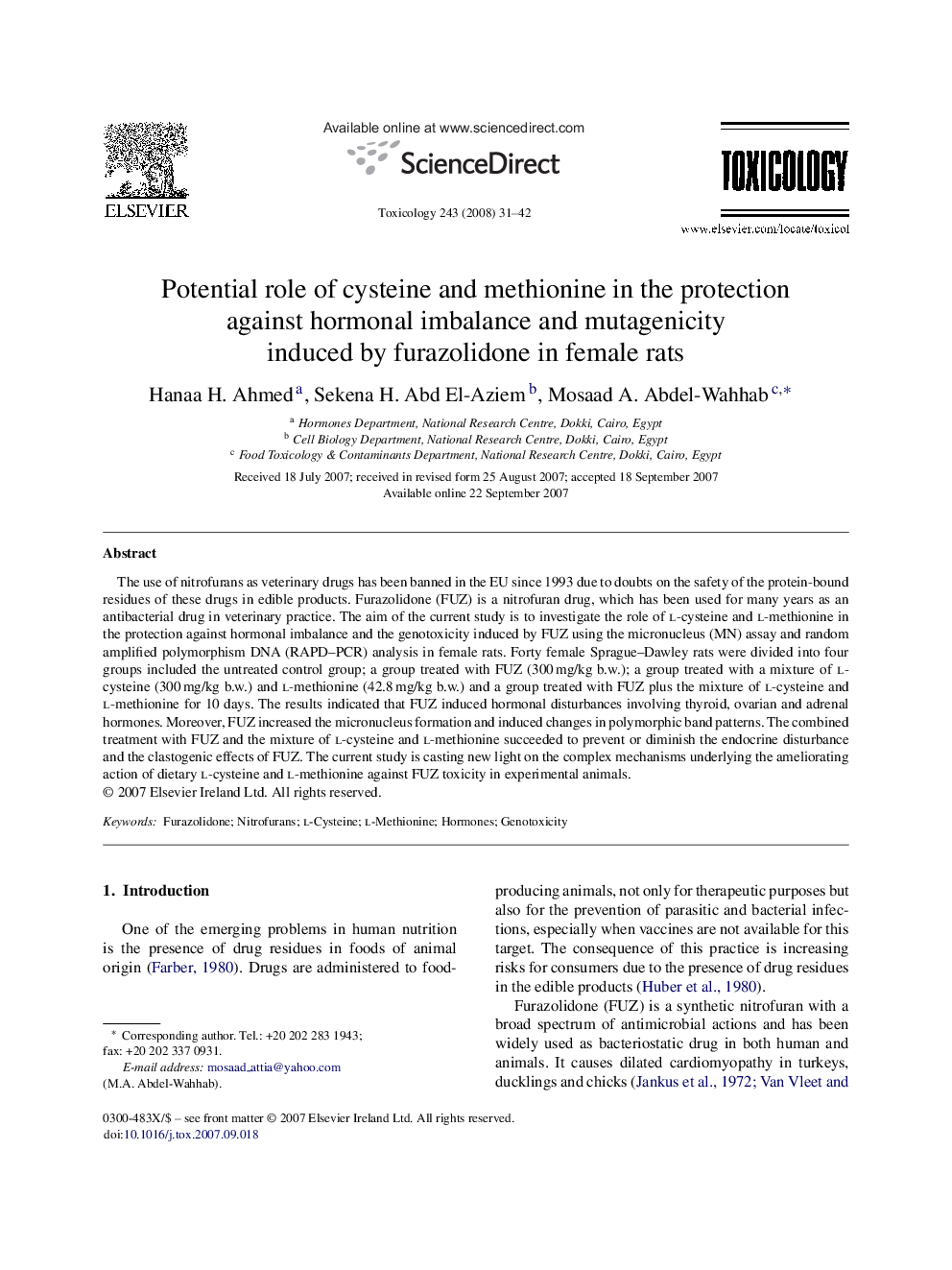| Article ID | Journal | Published Year | Pages | File Type |
|---|---|---|---|---|
| 2597405 | Toxicology | 2008 | 12 Pages |
The use of nitrofurans as veterinary drugs has been banned in the EU since 1993 due to doubts on the safety of the protein-bound residues of these drugs in edible products. Furazolidone (FUZ) is a nitrofuran drug, which has been used for many years as an antibacterial drug in veterinary practice. The aim of the current study is to investigate the role of l-cysteine and l-methionine in the protection against hormonal imbalance and the genotoxicity induced by FUZ using the micronucleus (MN) assay and random amplified polymorphism DNA (RAPD–PCR) analysis in female rats. Forty female Sprague–Dawley rats were divided into four groups included the untreated control group; a group treated with FUZ (300 mg/kg b.w.); a group treated with a mixture of l-cysteine (300 mg/kg b.w.) and l-methionine (42.8 mg/kg b.w.) and a group treated with FUZ plus the mixture of l-cysteine and l-methionine for 10 days. The results indicated that FUZ induced hormonal disturbances involving thyroid, ovarian and adrenal hormones. Moreover, FUZ increased the micronucleus formation and induced changes in polymorphic band patterns. The combined treatment with FUZ and the mixture of l-cysteine and l-methionine succeeded to prevent or diminish the endocrine disturbance and the clastogenic effects of FUZ. The current study is casting new light on the complex mechanisms underlying the ameliorating action of dietary l-cysteine and l-methionine against FUZ toxicity in experimental animals.
